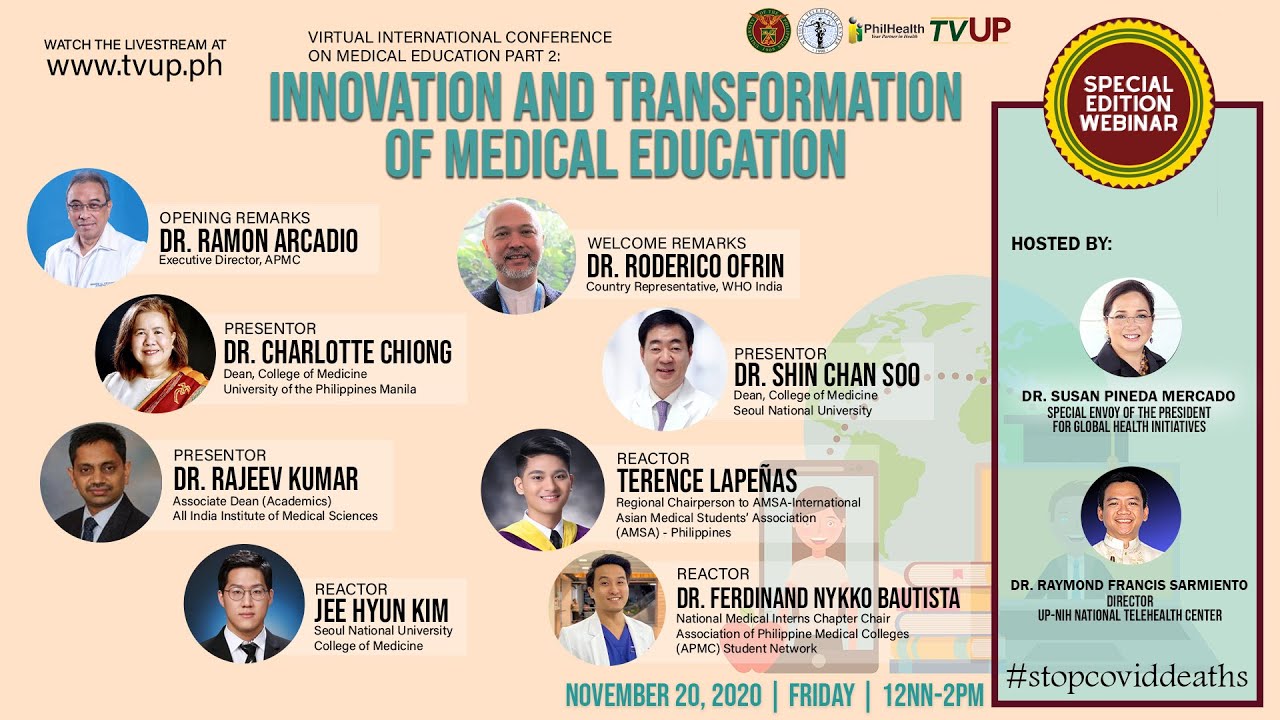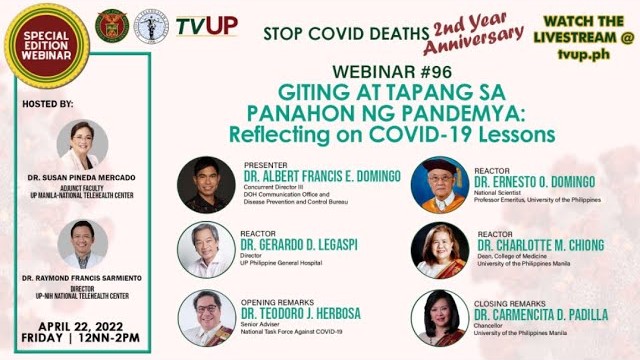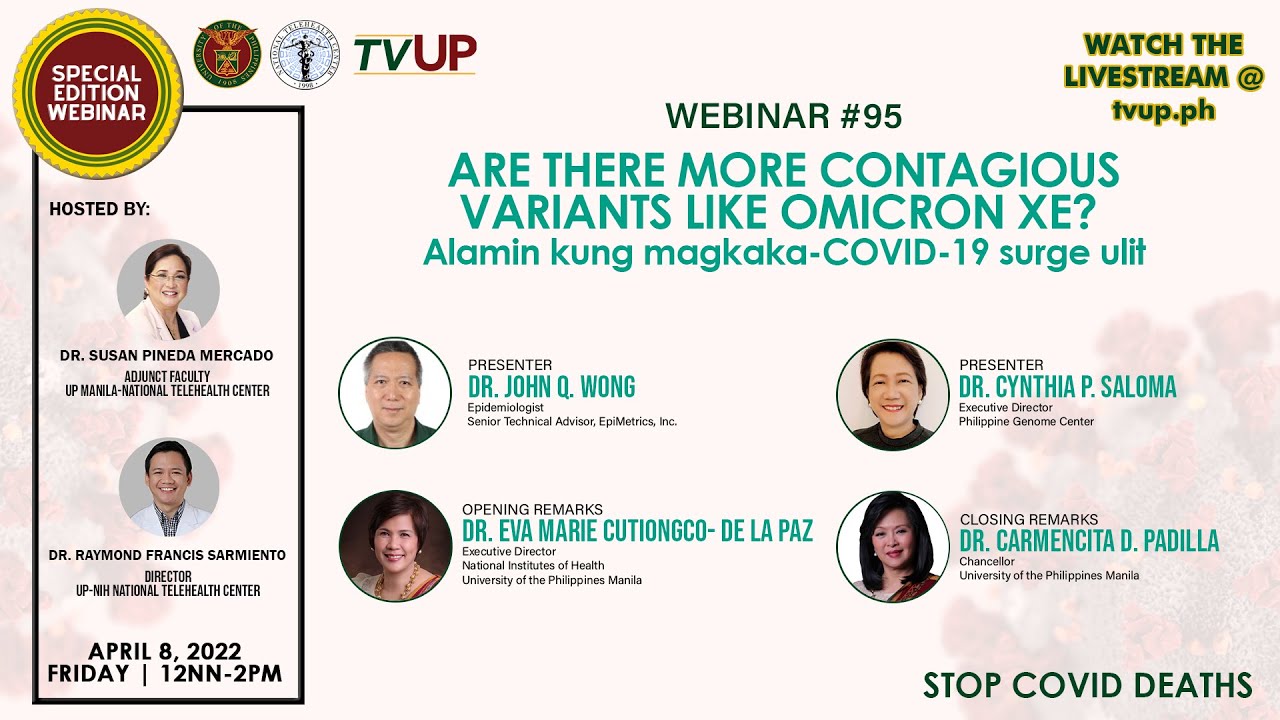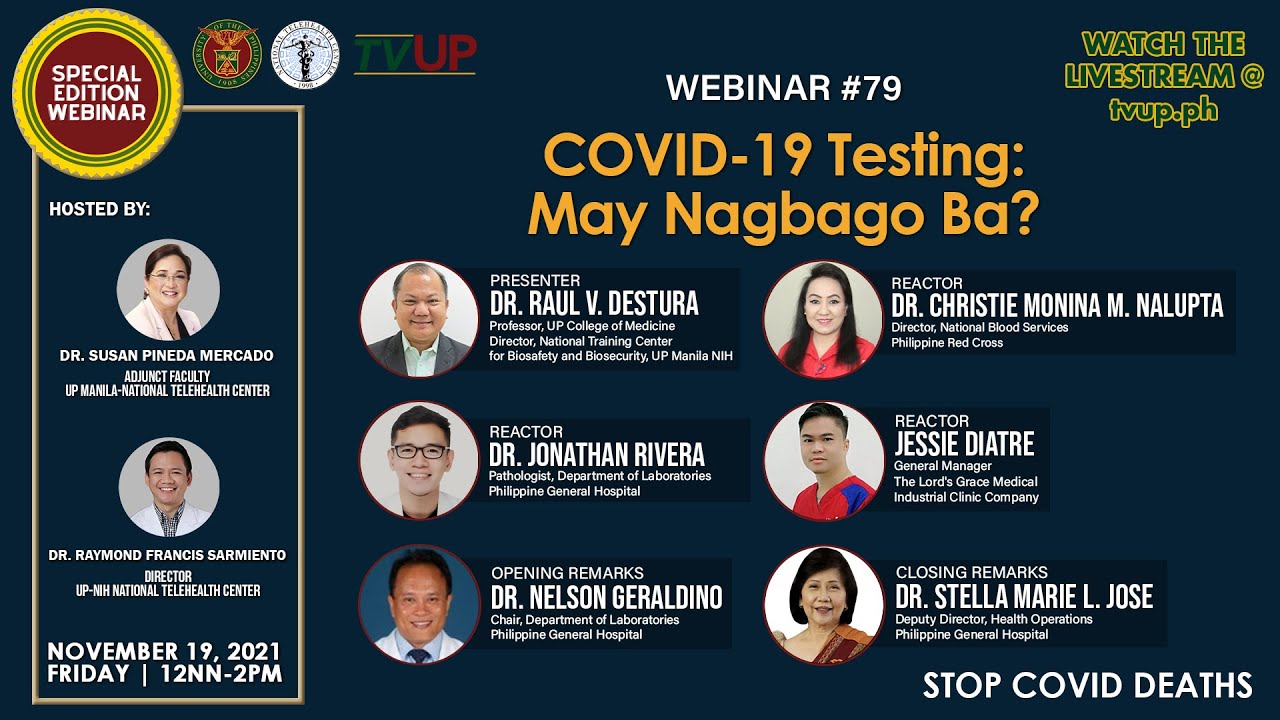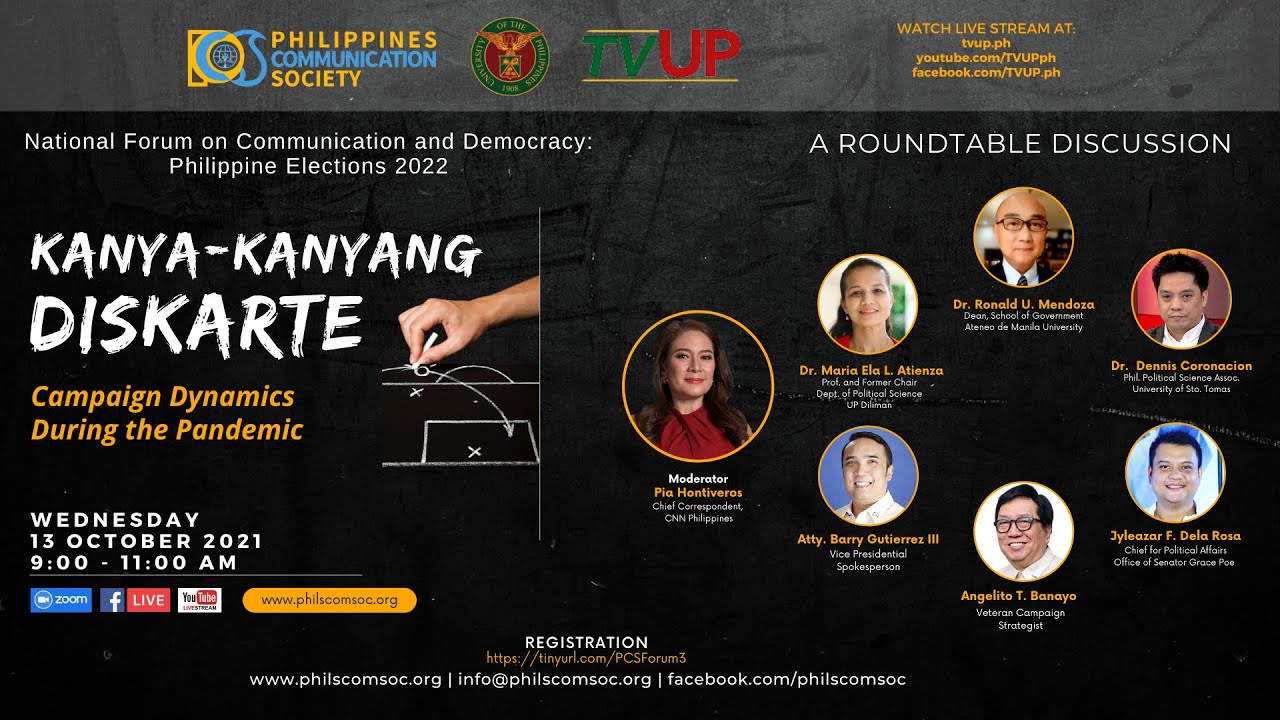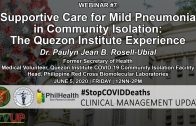Webinar #31 | “Part 2: Innovation and Transformation of Medical Education”
Webinar #31 | “Part 2: Innovation and Transformation of Medical Education”
The University of the Philippines
in partnership with
Philippine Health Insurance Corporation (PhilHealth) and UP Manila NIH National Telehealth Center
in cooperation with
UP Manila College of Medicine and
UP Philippine General Hospital
would like to invite you to join the Fight Against COVID-19!
The SPECIAL EDITION of the STOP COVID DEATHS Webinar Series holds the very first Virtual International Conference on Medical Education in the Pandemic
Webinar #31: “Part 2: Innovation and Transformation of Medical Education”
November 20, 2020 (Friday) 12nn
Opening Remarks
Dr. Ramon L. Arcadio
Executive Director, APMC
Welcome Remarks
Dr. Roderico Ofrin
Country Representative, WHO India
Presentors:
Dr. Charlotte Chiong
Dean, College of Medicine
University of the Philippines Manila
Dr. Shin Chan Soo
Dean, College of Medicine
Seoul National University
Dr. Rajeev Kumar
Associate Dean (Academics)
All India Institute of Medical Sciences (AIIMS)
Reactors:
Terence Lapeñas
Regional Chairperson to AMSA-International
Asian Medical Students’ Association (AMSA)-Philippines
Ferdinand Nykko Bautista
National Medical Interns Chapter Chair
Association of Philippine Medical Colleges
(APMC) Student Network
Jhee Hyun Kim
College of Medicine
Seoul National University
Virtual International Conference on Medical Education in the Pandemic
Part 2: Innovation and Transformation of Medical Education
The first four years of medical education requires a combination of didactic,
laboratory-based, clinical and community approaches to prepare future doctors for
the practice of medicine. Medical school seeks to lay the foundation for application
of knowledge, skills, logic, empathy, and ethics in situations where decisions are
made under high stress to save lives and where miscalculations can result in death.
A lot of the learning is experiential and interactive.
How can medical education be sustained in the context of a pandemic where
students are restricted from interaction with faculty, fellow-students and patients?
Cessation of face-to-face learning in the first four years of medical education has
created anxiety for many students of medicine who may feel short-changed by
current restrictions. On the other hand, faculty members and students themselves
are also learning to use the current obstacles and barriers to evolve new and creative
solutions to teaching and learning that is resulting in innovation and transformation
of the profession itself. Afterall, the restrictions are created by a disease – and
looking for ways around disease transmission is a direct responsibility of the sector.
Across the world, medical schools are using telehealth platforms and simulation
laboratories to continue to learn. Students are more engaged in research.
Opportunities for service still abound and new ways of working with patients in
low-transmission areas are being organized.
In the future, medical schools may need to rethink how each part of the curriculum
is approached including more technology-based methods without sacrificing the
humane aspects of healing, presence and engagement with the sick.
As part of continuing efforts to protect the frontline against the backdrop of rising
numbers of COVID-19 infections in the community and as part of the STOP COVID
DEATHS Webinar Series of the University of the Philippines and the Philippine
Health Insurance Corporation, the “Virtual International Conference on Medical
Education in the Pandemic – Part 2: Innovation and Transformation of Medical
Education” is the second initiative to address the challenges of training doctors
against the backdrop of COVID-19.
